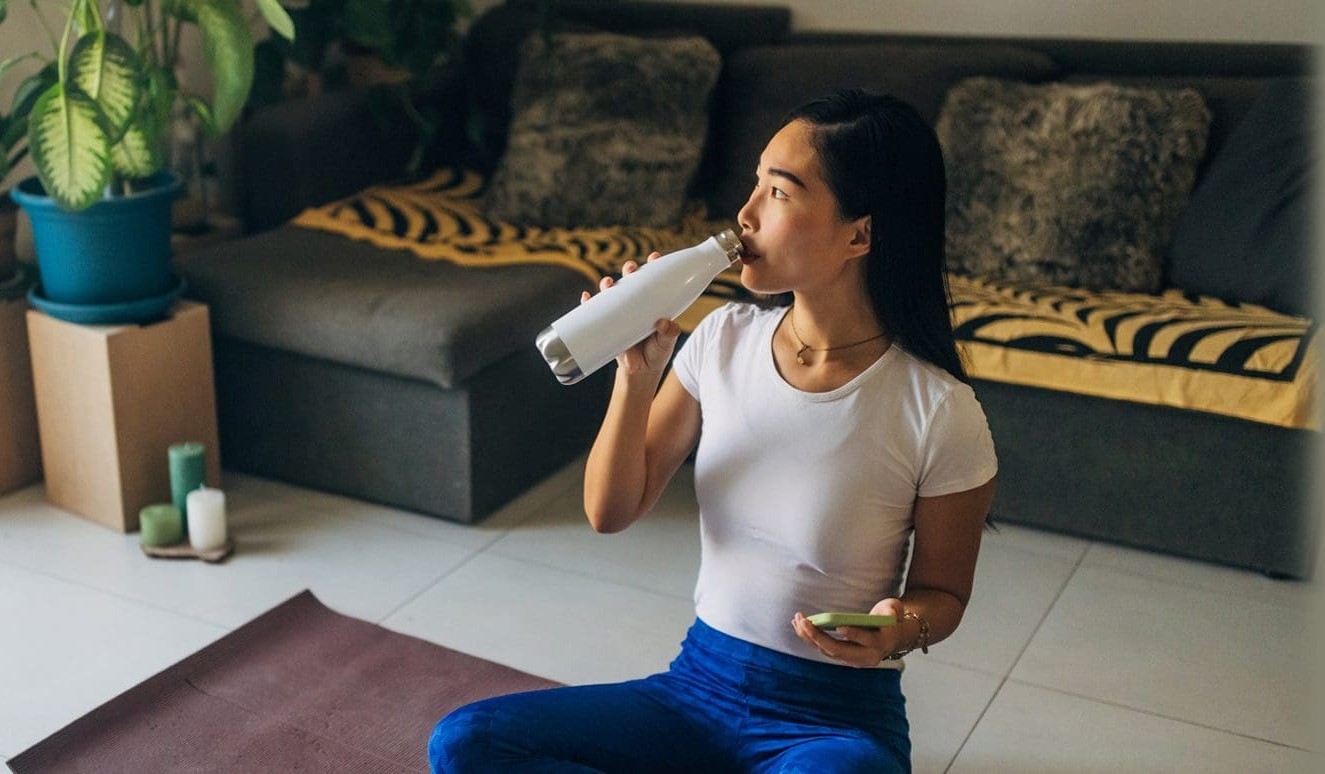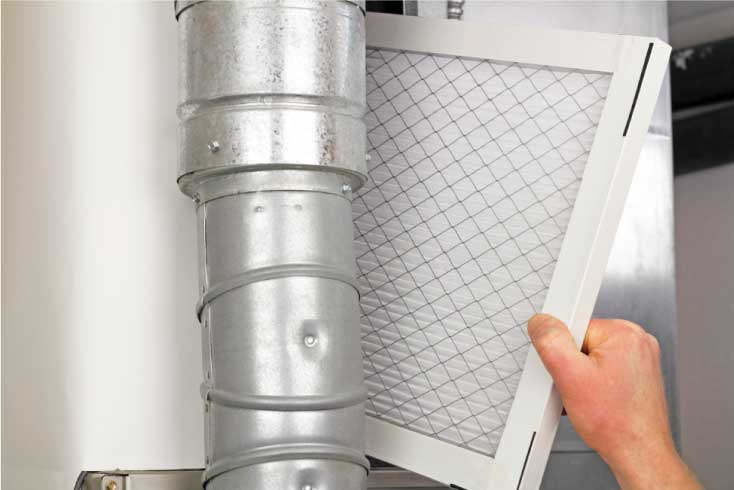

UV Light vs. HEPA Filter: Air Purification Technologies
Both UV light and HEPA filters are widely used in air purification systems, but they function in different ways to improve indoor air quality.
HEPA Filters: Capturing Particles
Definition : HEPA (High-Efficiency Particulate Air) filters are mechanical filters designed to trap airborne particles.
Effectiveness : They capture 99.97% of particles as small as 0.3 microns, including dust, pollen, pet dander, mold spores, and some bacteria.
Limitation : HEPA filters do not kill microorganisms; they only trap them. Regular filter replacement is necessary to maintain efficiency.
How Hepa Filters Can Make Your Air Cleaner
HEPA stands for “high-efficiency particulate air” and is a technology, originally developed by the nuclear industry to clean up dangerous, radioactive particles, that also very effectively filters out and traps household particles in the air through the use of dense interlaced fibers.
In fact, unlike traditional high efficiency filters, which remove only about 95% of pollutants down to 1 micron in size, HEPA filters are so effective, they remove about 99.97% of particles down to 0.3 microns from the air.
How small are the particles HEPA filters capture? Really small! To give you some perspective, while a human hair is about 50 to 150 microns in diameter, HEPA technology can trap 99.97% particles that are about 0.3 microns in diameter or larger, hundreds of times smaller.
So, how big are the particles HEPA filters trap?
Mold Spores: 3-12 microns
Bacteria: 0.3-60 microns
Make sure when buying HEPA filters to avoid products with terms like “HEPA-like” or “HEPA-type”. A genuine HEPA filter will indicate that it filters at least 99.97% of particles at 0.3 microns.
We’re taking every precaution to keep you and our team members safe during each home visit. For help you can trust, Call on High Class.
For even more great information about Indoor Air Quality and Air Purification, be sure to read our Ultimate Guide to Indoor Air Quality.
UV Light: Capturing Particles
Definition : UV-C light is a type of ultraviolet light that disrupts the DNA and RNA of microorganisms, effectively killing or inactivating them.
Effectiveness : UV light can neutralize bacteria, viruses, and mold spores, reducing airborne infections.
Limitation : UV light does not remove particles like dust or pollen. Some UV air purifiers may emit ozone, which can be harmful to respiratory health.
Purified, Chemical-Free Water with UV Light
UV (Ultraviolet) light water disinfection systems have gained popularity for home use due to their ability to help control bacteria, viruses, and other pathogens without chemicals. Here are some key facts about UV light water disinfection systems:
Mechanism of Action
UV water disinfection systems use ultraviolet light which can kill or deactivate bacteria, viruses, and other microorganisms by disrupting their DNA, rendering them unable to reproduce and causing them to die off.Effectiveness
UV light can be effective against a wide range of microorganisms.Chemical-Free
UV water disinfection systems do not require chemicals such as chlorine, making them chemical-free for water treatment.No Change in Water Chemistry
Unlike chemical disinfection methods, UV treatment does not alter the taste, odour, or pH of the water.Low Maintenance
UV water disinfection systems are relatively low maintenance. They typically require annual bulb replacement and occasional cleaning of the quartz sleeve to maintain optimal performance.Pre-Filtration
While UV treatment can kill microorganisms, it does not remove particulate matter, sediment, or other contaminants from the water. Therefore, it is often recommended to use a pre-filtration system, such as a sediment filter (included), to remove such particles before the water undergoes UV treatment.Flow Rate
The effectiveness of UV water disinfection systems depends on the flow rate of water passing through the system and the UV light’s intensity. It’s essential to ensure that the flow rate matches the system’s specifications to help achieve adequate disinfection.Application
UV water disinfection systems are commonly used for treating water from private wells, rainwater harvesting systems, or municipal water supplies where microbial contamination is a concern. They are suitable for both residential applications.Installation
UV water disinfection systems are installed at the point of entry (POE) into the home’s water supply, ensuring that all water entering the household is treated before use.Regulation
UV water disinfection systems for residential use are subject to regulations and standards to ensure their safety and efficacy. It’s essential to choose a system that complies with relevant regulatory standards and has been tested and certified by reputable organizations.
Why Choose Us for Your Water Purification Solution?
High-quality water purification systems at competitive prices
All repairs included with rental
Trained, insured, and certified plumbers
Replacement filters delivered to your door annually (with rental)
Available to take your call 24/7
Complimentary water assessment and consultation
100,000+ 5-star user reviews on Google
Member of the Canadian Water Quality Association
Serving Canadian homeowners for over 60 years
Tens of thousands of satisfied water purification customers
1M+ home comfort customers across Canada
To learn more about household water purification, check out our Ultimate Water Purification Guide then Call Us™ for a free in-home water assessment consultation and quote. Looking for more solutions? Return to our Water Purification page.
UV Light & HEPA Filter Services for Cleaner Indoor Air
Improve your indoor air quality and reduce allergens, bacteria, and viruses with professional UV light and HEPA filter installation and maintenance. At High Class, we help you breathe cleaner, healthier air year-round.
UV Light & HEPA Filter Installation Process
Assess HVAC System Compatibility
We evaluate your existing HVAC system to recommend the right UV light and/or HEPA filtration units tailored to your air quality needs.Power Down HVAC System
For safety, we shut off power before installation.Install UV Light Units
UV lights are typically installed inside the air handler or ductwork, positioned to maximize exposure to microbial contaminants on coils and in the airflow.Install HEPA Filter System
HEPA filters can be added as standalone air purifiers or integrated into your HVAC system with custom housings or retrofit kits.Electrical Wiring
We connect UV lights to a dedicated power source or your HVAC system’s control panel.Test System Operation
After installation, we power the system on, verify UV light activation, and check airflow through HEPA filters to ensure optimal performance.
UV Light & HEPA Filter Repair and Maintenance
UV Light Not Turning On
We check power supply, replace bulbs (which typically last 9-12 months), and repair or replace ballasts or wiring as needed.Reduced Airflow or Clogged HEPA Filters
HEPA filters require regular replacement (every 6-12 months depending on usage). We inspect and replace filters to maintain airflow and filtration efficiency.Unusual Noises or Electrical Issues
Our technicians diagnose and fix electrical faults or mechanical issues affecting system performance.Cleaning & Sanitizing
We perform routine cleaning of UV light housings and HVAC components to maximize system effectiveness.
FAQs
Can I use both a HEPA filter and UV light in the same system?
Yes! Many air purifiers and HVAC systems combine both technologies for more effective purification—HEPA filters remove particles, and UV light kills germs.
Is a HEPA filter enough to protect against viruses and bacteria?
HEPA filters can trap many bacteria and some viruses attached to particles, but they don’t kill them. UV light adds an extra layer by destroying the DNA of pathogens.
Is UV light safe to use in air purifiers?
Yes, when used internally in a sealed air purifier or HVAC system, UV-C light is safe. However, direct exposure to UV-C light can be harmful to skin and eyes, so it should always be contained.
Testimonials
Honest Reviews from our Customers

Jane Anderson
Homeowner, San Diego

